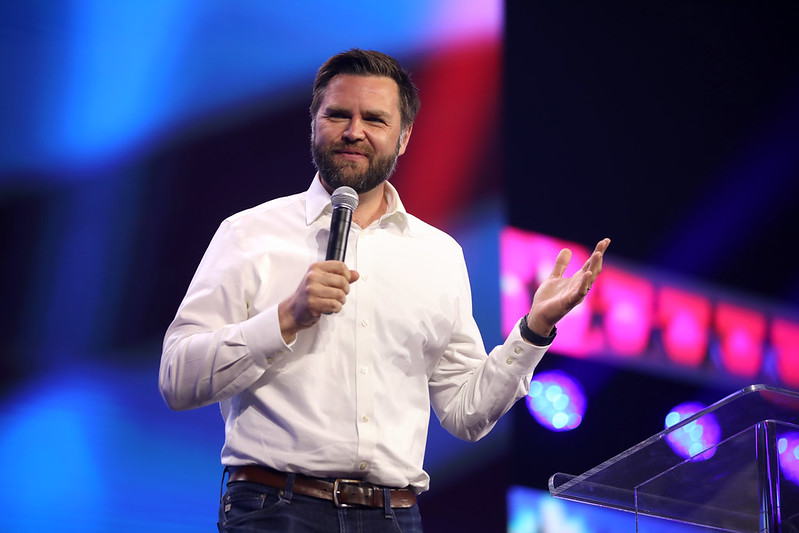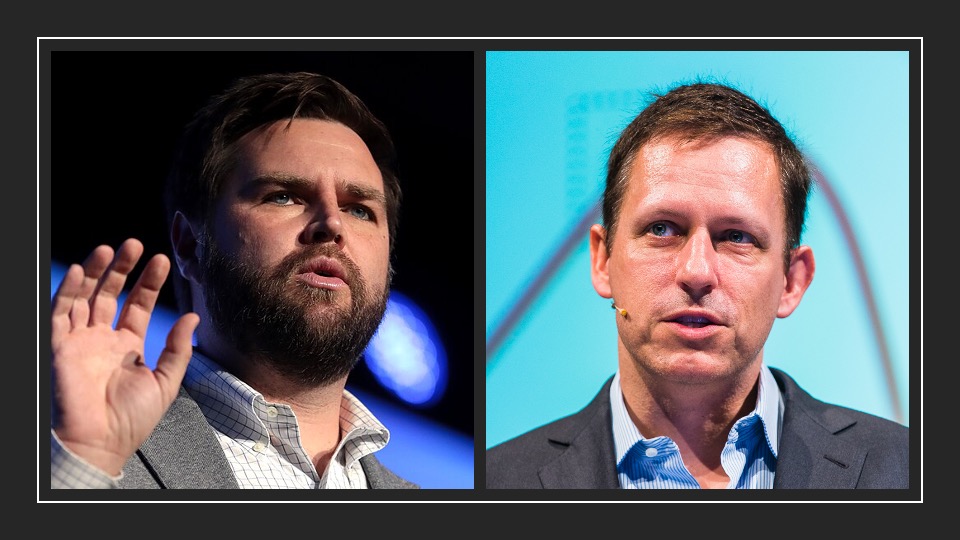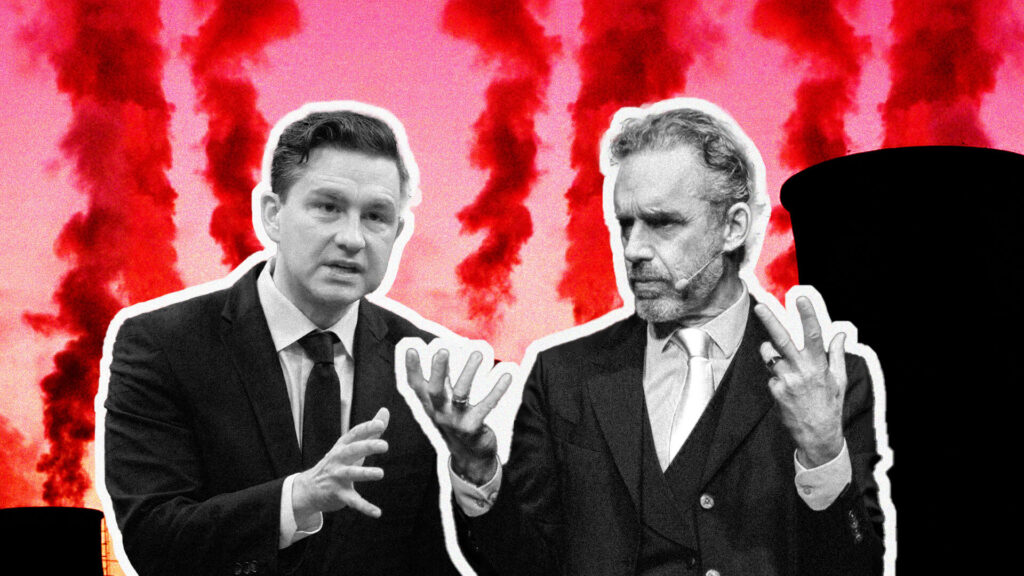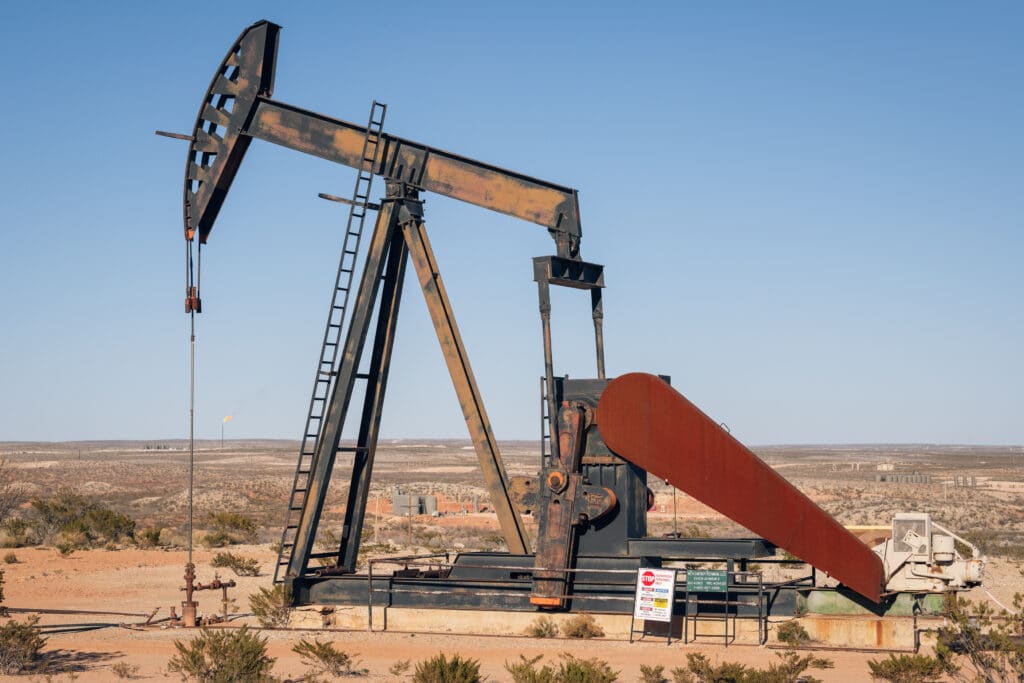More than a million Americans along Hurricane Helene’s path had no access to electricity to watch last night’s vice presidential debate. An estimated 3.5 million had their access to clean tap water disrupted or entirely cut off during the 90-minute contest, with federal officials tracking over 600 public water systems that partially or fully failed and unable to obtain information about nearly 700 more. All roads in Western North Carolina were still officially considered closed on Monday night, with portions of dozens of state highways listed as impassable or “gone.”
Against this backdrop, the second question of the debate centered on Hurricane Helene and climate change, the only time either candidate was asked for his views on climate.
Subscribe to our newsletter
Stay up to date with DeSmog news and alerts
“Scientists say climate change makes these hurricanes larger, stronger and more deadly because of the historic rainfall,” moderator Norah O’Donnell said. “Senator Vance, according to CBS News polling, seven in ten Americans and more than 60 percent of Republicans under the age of 45 favor the U.S. taking steps to try and reduce climate change. Senator, what responsibility would the Trump administration have to try and reduce the impact of climate change?”
JD Vance responded by labeling decades of research on climate change “weird science,” while incorrectly explaining its conclusions. “But one of the things that I’ve noticed some of our Democratic friends talking a lot about is a concern about carbon emissions, this idea that carbon emissions drives all the climate change,” he said. “Well, let’s just say that’s true, just for the sake of argument, so we’re not arguing about weird science. Let’s just say that’s true.” (Of course, scientists proved years ago that carbon emissions contribute to climate change.)
His policy prescription? More fossil fuels. “Natural gas. We got to invest more in it,” Vance said, with no acknowledgment of the role methane plays alongside carbon in driving the greenhouse effect. Later in the night he added, “As Donald Trump says, ‘drill, baby, drill.’”
But Vance’s tone on climate change overall seemed strikingly different from the approach of Donald Trump, whose mocking remarks this summer about climate change creating “more oceanfront property” came up during the debate.
Instead, on climate, Vance’s debate performance seemed to more closely echo a different billionaire: Peter Thiel, who fueled Vance’s rise with over $15 million in donations to the Republican’s campaign for Senate in 2022.
Like Thiel, Vance implies that climate science is the sort of thing you’d have to debate — worth acknowledging, but only as a possibility when it comes to the desirability of using fossil fuels.
A look back at Thiel’s past comments reveals a host of misunderstandings on energy and climate — potentially serious ones given the increased proximity to political power a Trump presidency would bring the wealthy co-founder of PayPal and Palantir, a surveillance contractor for the federal government.
Fossil Future
Thiel has spent hours in conversation with author and fossil fuel proponent Alex Epstein, repeatedly appearing in public alongside Epstein.
Back in 2022, the billionaire personally participated in the launch of Epstein’s book Fossil Future at a private event with no reporters present, with festivities including “a two-hour ride on a Navy SEAL boat to an offshore oil rig,” Epstein said as the panel kicked off.
Audio from Epstein’s private book launch was obtained by Documented, and an edited video of the event was also later posted to YouTube.
At that talk, Thiel was open about his political bent. “I’m of course inclined often just to have, you know, crazier conspiracy theories of politics,” he said.
During the discussion, Thiel acknowledged the possibility that fossil fuels pose climate hazards but urged using them anyway. “And so even if there are extremely large dangers with fossil fuels, I would say, and even if there’s some legitimate theories you can construct on where there could be runaway effects, the cost benefit tells us we have to go forward,” he said.
“We should be using more fossil fuels. We should be using a lot more energy generally,” Thiel said.
Fracking Fallacies
Beyond his apparent failure to grasp the scale of the climate consequences of his policy prescriptions, Thiel’s conversations with Epstein have revealed large gaps in his understanding of how the energy industry works today.
For example, in a 2023 podcast titled “Peter Thiel Challenges Alex Epstein on Fossil Future,” Thiel riffed on what he saw as an ideal energy future, characterizing solar and wind power as “polluting,” a word he seemed to use synonymously with “ugly.”
”My intuition is maybe we have lots of forests and a few nuclear power plants and then they’d power the whole country,” Thiel said. “Versus we’ve chopped down all the trees and covered them with solar panels that barely work or something like this — or we have windmills polluting the entire coast, just uglifying the landscape.”

Of course, a grand vision of just a few nuclear power plants powering the entire U.S. might be appealing, but it’s hardly grounded in reality. Nuclear currently provides less than one-fifth of the utility-scale electricity generated in the U.S. — and electrical power is roughly a third of the nation’s overall energy use. That’s with 54 operating nuclear power plants remaining, as plants age and are retired. It’s worth noting that the only modern addition to America’s nuclear fleet, Southern Company’s Plant Vogtle, cost $37 billion to build, making it, by some estimates, the most expensive power plant in the world.
Thiel’s remarks at Epstein’s book launch revealed a lack of understanding of the basics of the fossil fuel industry as well.
The billionaire floated a theory about fracking, suggesting that what’s drawn oil drillers to Texas today has less to do with oil than it does with culture, politics, and the sea.
“Pennsylvania was going to have massive fracking,” he said. “Fast forward from 2012 to 2022 and the industry is overwhelmingly in Texas.”
“I sort of wonder whether sort of the feature that Texas has that enabled it to work is that it’s quite big, it has direct access to the ocean,” he added. “And so you were able to basically let the industry exist without federal interference.”
“And that seems to me is probably not a truth of geology or of science,” he said, “but is telling us something very interesting about the politics.”
Thiel’s theory falls to pieces if you know some pretty basic things about the shale industry — specifically that Pennsylvania’s Marcellus shale holds virtually no oil, meaning fracking there mostly just produces the hard-to-transport fuel natural gas, while what drillers find in Texas’s Permian Basin is the real thing: highly-prized light sweet crude oil.
In other words, the easiest explanation for why there’s more fracking in Texas than in Pennsylvania comes down to the very factors Thiel discounted, geology and science. It’s pretty simple: Oil drillers go where the oil is.
Given the amount he’s written about fossil fuels, Epstein should know these basics about the oil and gas industry better than most — as should any of his fans who themselves work in the industry.
But at his book event, he went along with the billionaire’s riff.
“Yeah, I think that’s right,” Epstein replied. He compared the ongoing fracking spree in Texas to the industry’s failures in California a decade ago — not faulting the near-total lack of recoverable oil in California’s Monterey shale but instead blaming a set of concepts he labeled “anti-impact ideas.”
Vance’s ‘Most Prominent Benefactor’
JD Vance’s ties to Thiel have been well documented.
“Vance’s most prominent benefactor over the years is Peter Thiel, the iconoclastic tech pioneer and investor,” CBS News reported in July. “Thiel hired Vance at his global investment firm in 2017, and then nurtured Vance’s political rise, donating $15 million to his 2022 Ohio Senate campaign and helping him win a closely fought GOP primary before going on to capture the seat in the general election.”
When it comes to climate change, neither Vance nor Thiel seems to want to debate science directly publicly, but Thiel ultimately does take issue with the scientific consensus.
“You know, I’ve often said I’d be much more open to believing in the problematic nature of climate change if I believed there was a vigorous debate, in which people could actually have this debate in which people could get tenure in universities who had different views on this,” he said at Epstein’s Fossil Future event.
Thiel most recently affirmed those views in an interview with Joe Rogan this summer, calling climate science “science in quotes.”
It’s worth noting that, as with Thiel’s musings on fracking, there is a pretty straightforward explanation on offer. If there’s no vigorous debate over “the problematic nature of climate change” in universities, as Thiel put it, perhaps it’s because the answer becomes pretty obvious once you’ve got a grasp of all the facts.
And indeed, as climate-related catastrophes pile up, the kind of “vigorous debate” Thiel called for seems to be increasingly politically toxic, even for Vance. During last night’s debate, Vance didn’t challenge the climate consensus directly. Instead, he drew from Thiel’s book, sidestepping the science while also presuming that it’s something debatable.
At the end of the day, the outcome is the same. If you refuse to let the facts get in the way of your theories, that doesn’t change the consequences in the aftermath.
Fossil fuels have already upended the climate we live in, making life more difficult, unpredictable, and expensive.
The growing death toll and emerging damage from Hurricane Helene might illustrate just how bad climate catastrophes can be, but it’s hardly alone amid the rising number of deadly multibillion-dollar disasters hitting the U.S. in recent years.
That’s less “weird science” and more the predictable outcome of the unchecked “drill baby drill” and “more fossil fuels” policy outcome where Thiel, Vance, and Trump’s views ultimately align.
Subscribe to our newsletter
Stay up to date with DeSmog news and alerts







